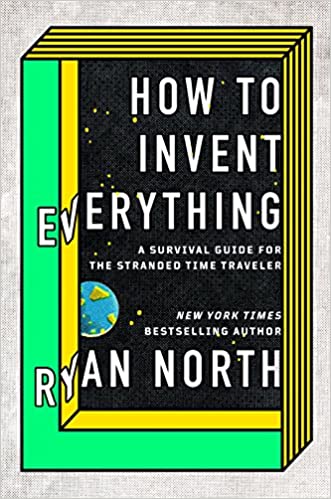My greatest book-related indulgence is that I order every single book that gets recommended by MiB guests.
Every. Single. One.
Don’t get me wrong, I don’t have the time to read 3-5 books per week. But what this does is create a library that urges and nags me to read more than I might otherwise. (prior lists here).
I do end up starting a lot of books each year. Some are authors I interview on MiB, some are work-related topics, some are just for the sheer pleasure of reading. But I do not complete every book I start — this isn’t a homework assignments — and I abandon any book I am not enjoying. I wish I learned to do that decades ago, but better late than never.
These were the best books I read in 2020 (including who recommended each). Every one was a pleasure. Enjoy!
How to Invent Everything: A Survival Guide for the Stranded Time Traveler by Ryan North
Ryan North‘s book has three aspects I really enjoyed:
1. The structural conceit is this book accompanies your rental time machine, in case something goes wrong, and if you get stuck in an earlier time, the book will shield the company from any litigation.
2. Learn from first principles how to invent modernity. Science: engineering, art, philosophy, etc. are detailed from the ground up.
3. Surprise revelation: Many of mankind’s greatest inventions could have been created decades, even centuries earlier — we had we needed in terms of tools and knowhow, we were just too clueless to do so.
(found via Twitter)
~~~
Americana: A 400-Year History of American Capitalism by Bhu Srinivasan
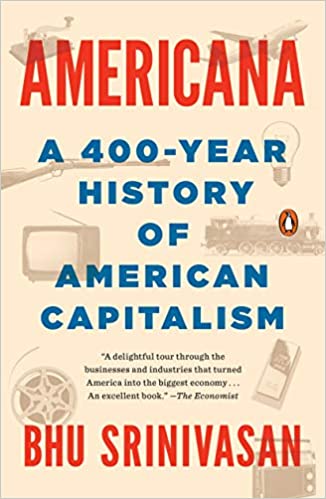
Americana traces the history of American-style Capitalism, reminding us the political economy is far more complex than the simple labels we tend to use. Reality is far messier, filled with externalities, complications and comprises then is predicted by academic theories.
The great insight made by Srinivasan is this: American-style big government and a dominant private sector have a symbiotic relationship, each could do not exist without the other. The American narrative may center on liberty and freedoms, but Americana tells “the parallel story of money, ambition, brands, and consumerism as an equally guiding force.” I discussed this in greater detail here.
The book was recommended by Chris Davis of Chris Davis Advisors.
~~~
The Psychology of Money: Timeless lessons on wealth, greed, and happiness by Morgan Housel
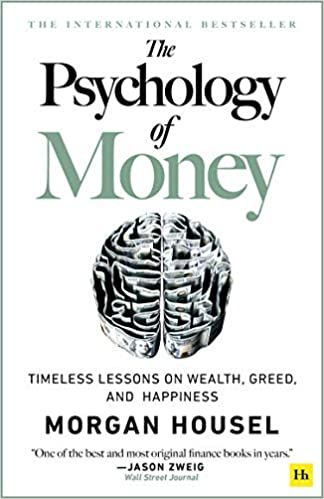
The long awaited first book from Morgan Housel did not disappoint: He describes the early part of his career as a downhill ski racer in high school, working briefly in investment banking and private equity, before a friend at the Motley Fool invited him to try writing — turned out he was good at it, too.
Housel’s style is to write towards an ideas (rather than for a specific audience) by using narratives to illustrate important financial themes.
It is everything you would expect from Housel: Interesting, informative, filled with investing lessons, but without the typical scolding.
Morgan’s MiB is here.
(Did you really need anyone to recommend Housel’s book to you?)
~~~
At Home: A Short History of Private Life by Bill Bryson
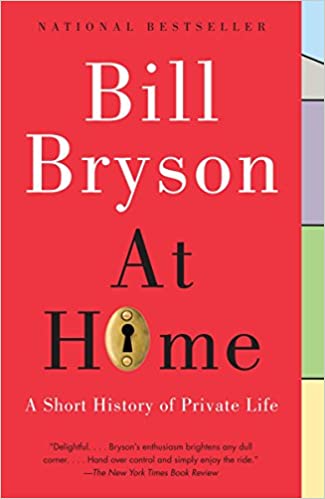
How did the modern home become what it is today? That fascinating historical question is what leads Bryson to take us on a room-by-room tour of the home, using each to explore the vast history of the domestic artifacts we take for granted. Technological innovations — plumbing, heating, lighting, paint, electricity, etc., — are only part of what makes a house a home.
The book takes a deep dive into the economic and class underpinnings that manifest in how our homes have evolved. Example: The “dining room” come into existence as a way to prevent guests from wiping their greasy, food-stained fingers on the living room furniture.
An utterly fascinating joyride, every page filled with delightful details.
Recommended by both Paul Wraith, Chief Designer for Ford and author Derek Thompson.
~~~
Loonshots: How to Nurture the Crazy Ideas That Win Wars, Cure Diseases, and Transform Industries by Safi Bahcall
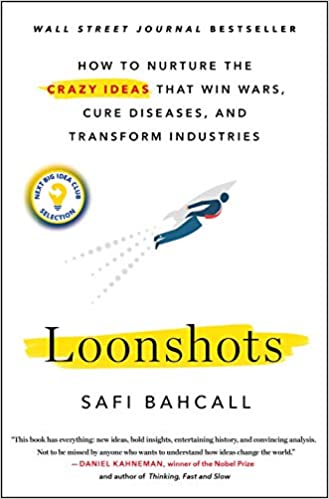
Loonshots identifies the small shifts in structure that control transitions between states in organizations. Don’t let that description put you off of it, its quite fascinating.
The book begins with Vannevar Bush an American engineer who headed the U.S. Office of Scientific Research and Development (OSRD) during World War II. he was in charge of almost all wartime military R&D, including developments of radar, and the Manhattan Project.
Bush understood that all successful organizations must manage two types of activity: Those products that generate immediate revenue (these pay the bills) and those long term innovations that will pay off in the future.
Read for Safi Bahcall’s MiB.
~~~
Salt, Fat, Acid, Heat: Mastering the Elements of Good Cooking by Samin Nosrat
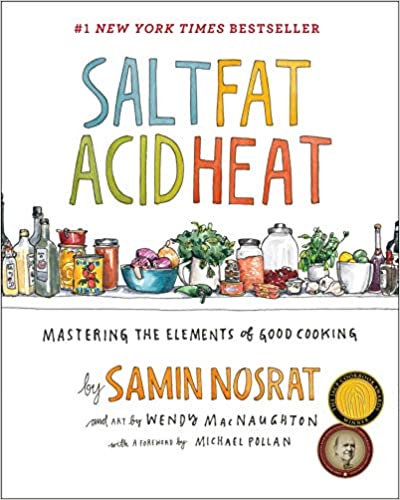
This is the only book on the list I technically did not finish in 2020. But it is a cookbook, and I have read everything that is not a recipe (and also watched the related Netflix series). Even more impressive are the 11,327 5 star ratings on Amazon. “A Love letter to amateur chefs.”
This was my holiday gift this year to a few friends who I know love to cook.
Found . . . pretty randomly.
~~~
Open: An Autobiography by Andre Agassi

It is rare that a sports book captures my attention, rarer still when a sports autobiography does. But “Open” delivers a compelling life story superbly told by an athlete. Desire, motivation, and competitive drive him to the the highest levels of professional tennis, but he loses his interest, and was so often unhappy, confused and unfulfilled by his achievements. As an autobiography, it is bluntly honest, sometimes painful, but most of all a fascinating compelling read.
Recommended by Safi Bahcall
~~~
Coach: Lessons on the Game of Life by Michael Lewis

I have interviewed Michael lewis a few times, and in preparation for the most recent conversation about his new podcast, I read this short, sweet book. His tales of Coach Fitz, what leadership truly is, and how the world has changed makes for a wonderful read. Oh, and its Michael Lewis.
MiB: Michael Lewis on Coaches and Risk
~~~
Plays With Cars by Doug DeMuro
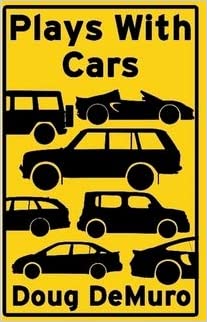
On the off chance you were aware, I am a car guy. I drive, read the reviews, watch the videos. One of my favorite YouTubers is Doug DeMuro, whose straight forward approach, obvious love of vehicles and sense of humor makes his twice weekly reviews a favorite. Hey, why not have him on the podcast?
He was game, and as part of my prep, I read this amusing short collection of his writings. They were fun and funny and informative — everything you could want in a collection about cars.
~~~
Hamilton: The Revolution by Lin-Manuel Miranda and Jeremy Carter

I have a kooky, too-long story about seeing Hamilton on Broadway and sitting in the worst seat (first half) and best seat (second half) in the house. Discussing this experience with Dave Nadig (who uses an amazing trick to find great last minute cheap seats) when the recommendation of this annotation of the shows lyrics came about. It reveals a depth to the show that makes it even stronger than previously believed.
Recommended by Dave Nadig.
~~~
Those are my favorite reads of 2020. Coming up next week: My 2021 reading list.

